
Petrophysics
Scope & Guideline
Connecting Research and Practice in Petrophysics
Introduction
Aims and Scopes
- Reservoir Characterization:
Research in this area focuses on understanding and quantifying rock and fluid properties to characterize reservoirs effectively, using methods such as NMR, resistivity, and advanced imaging techniques. - Fluid Dynamics and Properties:
Investigates the behavior and characteristics of fluids within porous media, including studies on fluid saturation, viscosity, and gas-oil ratios, utilizing both experimental and computational approaches. - Machine Learning and Data Analytics:
Emphasizes the application of machine learning techniques to enhance data interpretation and prediction models in petrophysics, including automated log analysis and reservoir property estimation. - Innovative Measurement Techniques:
Development and application of new tools and methodologies for measuring petrophysical properties, including advanced logging technologies and real-time monitoring systems. - Environmental and Energy Applications:
Explores the role of petrophysics in environmental contexts, such as CO2 storage, hydrogen storage, and the transition to low-carbon energy solutions.
Trending and Emerging
- Integration of Machine Learning:
There is a growing trend towards using machine learning algorithms for various applications in petrophysics, including automated data processing, log prediction, and uncertainty quantification. - Real-Time Data Acquisition and Analysis:
Recent publications emphasize the importance of real-time data collection and analysis, particularly in logging-while-drilling applications, enabling immediate decision-making during drilling operations. - Focus on Unconventional Resources:
Research is increasingly directed towards the characterization and exploitation of unconventional resources, such as shale gas and tight oil, necessitating advanced petrophysical techniques. - Sustainability and Environmental Concerns:
Emerging themes include the role of petrophysics in addressing environmental challenges, notably in carbon capture and storage, as well as underground hydrogen storage. - Advanced Imaging and Visualization Techniques:
The use of sophisticated imaging techniques, such as X-ray micro-computed tomography and dual ultrasonic technology, is on the rise, providing deeper insights into rock properties and fluid behavior.
Declining or Waning
- Traditional Logging Techniques:
There has been a noticeable decrease in publications focused on conventional logging techniques, as newer technologies and approaches gain traction in the field. - Basic Rock Property Studies:
Research centered on fundamental rock properties without integrating advanced analytical methods has diminished, likely due to the increased complexity and demands of modern reservoir characterization. - Static Reservoir Models:
The reliance on static models for petrophysical interpretation is declining, as dynamic models that account for changes over time and under different conditions become more prevalent.
Similar Journals
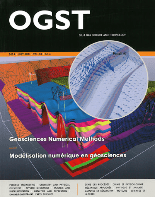
Oil & Gas Science and Technology-Revue d IFP Energies nouvelles
Advancing Energy Innovation through ResearchOil & Gas Science and Technology - Revue d'IFP Energies nouvelles, published by EDP SCIENCES S A, is a distinguished journal in the field of energy science, specifically focusing on the latest advancements in oil and gas technologies. Since its transition to Open Access in 1997, the journal has been dedicated to disseminating high-quality research that addresses the challenges and innovations inherent in energy engineering and fuels. With an ISSN of 1294-4475 and an E-ISSN of 1953-8189, this journal holds a significant position in academic circles, reflecting its contributions to sustainable energy solutions. The journal's rankings in Scopus showcase its impact, particularly in the areas of Energy Engineering and Power Technology (Rank #105/224), Chemical Engineering (Rank #131/279), and Fuel Technology (Rank #51/100). As a pivotal resource for researchers, professionals, and students, it aims to foster knowledge exchange and promote innovative technologies essential for the ongoing evolution of the energy sector.

SPE JOURNAL
Shaping the Future of Energy and Geotechnical EngineeringSPE JOURNAL, published by the Society of Petroleum Engineers, is a leading academic journal that provides a platform for the dissemination of high-quality research in the fields of energy engineering, geotechnical engineering, and engineering geology. With a solid impact demonstrated by its Q1 ranking in both Energy Engineering and Power Technology, as well as Geotechnical Engineering, the journal is well-positioned to influence advancements in sustainable energy practices and geotechnical methodologies. Covering research from 1969 through 2024, the SPE JOURNAL is dedicated to publishing innovative studies that contribute to the field's body of knowledge while addressing the challenges facing the global energy landscape. Though it does not offer open access, the journal’s rigorous peer-review process ensures that published works are of the highest academic quality, making it an essential resource for researchers, professionals, and students alike aiming to stay at the forefront of energy and geotechnical developments.
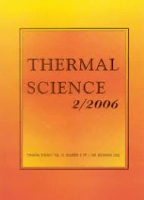
Thermal Science
Empowering knowledge in energy and environmental sustainability.Thermal Science is an esteemed open-access journal published by the Vinca Institute of Nuclear Sciences in Serbia. With a rich focus on the field of thermal science, this journal has established itself as a vital resource for researchers and professionals interested in the dynamics of energy, renewable energy systems, and environmental sustainability. Since its inception in 2001, Thermal Science has dedicated itself to disseminating high-quality research that addresses the challenges of contemporary thermal technologies. The journal has converged its years of publication from 2007 to 2024 and currently holds a Q4 ranking in the category of Renewable Energy, Sustainability, and the Environment, with a Scopus rank of #172 out of 270, placing it in the 36th percentile. This makes it a crucial platform for sharing innovations and findings that contribute to the development of sustainable energy solutions. With open access options available, Thermal Science ensures that knowledge is readily accessible, fostering collaboration and advancement in this critical field.

Interpretation-A Journal of Subsurface Characterization
Elevating Understanding of Subsurface DynamicsInterpretation: A Journal of Subsurface Characterization is a premier academic journal dedicated to advancing the methodologies and technologies integral to the characterization of subsurface environments. Published by the Société de l'Exploration Geophysicists (SEG), this journal serves the fields of geology and geophysics, reflecting its critical role in the intersection of these domains. With an h-index that underscores its scholarly impact and its ranking in the Q2 category for both Geology and Geophysics, Interpretation is recognized for publishing high-quality, innovative research that offers valuable insights and solutions to contemporary challenges in subsurface exploration. Since its inception in 2013, the journal has quickly become essential reading for researchers, professionals, and students alike, providing open access to a wealth of knowledge fostering collaboration and advancement within the geoscience community. Featuring a comprehensive range of studies, methodologies, and reviews, Interpretation is integral for professionals striving to enhance their understanding of subsurface dynamics and impacting areas such as resource management, environmental conservation, and hazard assessment.

ATOMIZATION AND SPRAYS
Exploring the Dynamics of Fluid MechanicsATOMIZATION AND SPRAYS, published by BEGELL HOUSE INC, stands at the forefront of research in the dynamic field of chemical engineering, particularly focusing on the intricate processes of atomization and the mechanics of droplet dynamics. Established in 1996, this prestigious journal aims to disseminate innovative findings and methodologies that drive advancements in applications ranging from spray technologies in industrial processes to environmental technology and energy conversion systems. With a current Impact Factor that reflects its significance within the community—ranked in the Q3 quartile—it serves as a comprehensive resource for researchers, professionals, and students eager to deepen their understanding of fluid mechanics and spray applications. Though not an open-access publication, it provides critical insights and a platform for scholarly communication and exchange in its converged years, fostering collaboration and innovation within the domain.
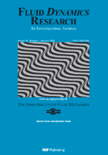
FLUID DYNAMICS RESEARCH
Bridging Disciplines through Fluid Dynamics ExplorationFLUID DYNAMICS RESEARCH, published by IOP Publishing Ltd, is a pivotal journal dedicated to advancing the understanding of fluid dynamics through interdisciplinary research that spans several domains including mechanical engineering and physics. With an ISSN of 0169-5983 and E-ISSN 1873-7005, this journal provides a vital platform for researchers aiming to disseminate new findings and theoretical advancements in fluid flow and transfer processes. As of 2023, FLUID DYNAMICS RESEARCH holds a commendable position within the academic community, ranked Q3 in fluid flow and transfer processes, mechanical engineering, and miscellaneous physics and astronomy categories. The journal showcases a diverse array of articles that not only inspire collaboration among professionals and students but also ensure that theoretical and experimental studies are accessible for further development in the field. Operating from the United Kingdom, the journal offers a unique opportunity for scholars worldwide to contribute to the vibrant community dedicated to understanding the complexities of fluid dynamics, even as it anticipates converging its years of research from 1986 to 2024.
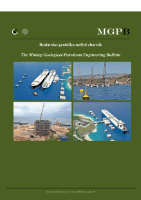
Rudarsko-Geolosko-Naftni Zbornik
Uncovering Insights in Mining and Petroleum EngineeringRudarsko-Geolosko-Naftni Zbornik, the esteemed journal published by the University of Zagreb's Faculty of Mining, Geology and Petroleum Engineering, serves as a vital platform for advancing knowledge in the fields of Earth sciences, energy, and geology. With an ISSN of 0353-4529 and an E-ISSN of 1849-0409, this open-access journal has been disseminating high-quality research since 1989, contributing significantly to scientific discourse in Croatia and beyond. As of 2023, it holds an impressive categorization in various quartiles, notably achieving Q2 in Earth and Planetary Sciences and Q3 in several related domains, showcasing its relevance and impact within the academic community. The journal's commitment to quality is reflected in its Scopus rankings, placing it in competitive positions across diverse disciplines. Researchers, professionals, and students alike will find invaluable resources and insights that foster innovation and collaboration in their respective fields, making Rudarsko-Geolosko-Naftni Zbornik an essential read for those dedicated to exploring the complexities of natural resources and environmental challenges.
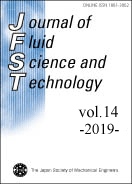
Journal of Fluid Science and Technology
Advancing the Frontiers of Fluid DynamicsThe Journal of Fluid Science and Technology, published by the Japan Society of Mechanical Engineers, serves as a pivotal platform for the dissemination of cutting-edge research in the fields of fluid mechanics and mechanical engineering. With an ISSN of 1880-5558, this Open Access journal has been dedicated to advancing the understanding of fluid flow and transfer processes since its establishment. As of 2023, it holds a significant position with a Q3 quartile ranking in both Fluid Flow and Transfer Processes and Mechanical Engineering categories. Researchers and practitioners are encouraged to explore the journal’s extensive collection of articles, contributing to the body of knowledge that impacts various practical applications in engineering and technology. The journal, which has established a reputation for quality amidst a competitive landscape, further fosters international collaboration and education by providing unrestricted access to its content. For professionals and students alike, the Journal of Fluid Science and Technology represents an invaluable resource for the latest findings and innovations in fluid dynamics and mechanical systems.
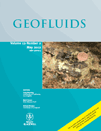
GEOFLUIDS
Unveiling the Dynamics of Our Planet's FluidsGEOFLUIDS, published by WILEY-HINDAWI, is an esteemed open-access journal dedicated to advancing the field of Earth and Planetary Sciences since its inception in 2001. With an ISSN of 1468-8115 and E-ISSN 1468-8123, the journal has become increasingly accessible, allowing for broader dissemination of research findings since adopting an open-access model in 2017. The journal has established itself within the academic community, achieving a Scopus rank of #86 in the domain of General Earth and Planetary Sciences, placing it in the 56th percentile, and garnering a Q3 category classification as of 2023. GEOFLUIDS serves as a platform for interdisciplinary exchange of ideas and findings—encouraging contributions that explore fluid dynamics in geological systems and their implications for natural resources and environmental management. Researchers, professionals, and students alike are invited to contribute to and engage with the latest research in this growing field, further enhancing the journal's role in shaping the future of Earth science research.

FDMP-Fluid Dynamics & Materials Processing
Advancing Knowledge in Fluid Dynamics and Materials ProcessingFDMP-Fluid Dynamics & Materials Processing, published by TECH SCIENCE PRESS, stands as a significant contribution to the field of materials science, specifically focusing on the intricate relationships between fluid dynamics and material processing. With an ISSN of 1555-256X and an E-ISSN of 1555-2578, this journal offers an open-access platform where researchers can disseminate their work broadly, promoting collaboration and innovation among professionals and students alike. Established in 2007 and continuously evolving through to 2024, the journal is classified in the Q4 category of materials science, ranking at #347 out of 463 in the Scopus database, signifying its niche yet crucial role in the academic community. By focusing on the dynamic interplay between fluid behavior and material properties, FDMP addresses contemporary challenges and advances in material processing techniques. The journal plays a pivotal role for academics and industry professionals seeking to push the boundaries of knowledge and application in materials science.